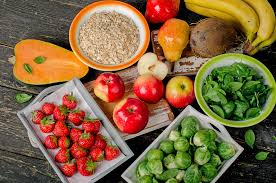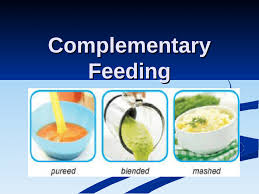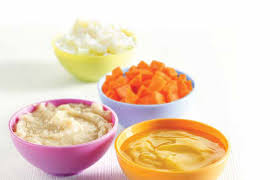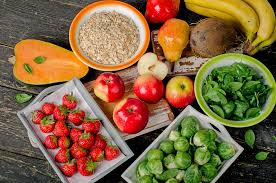An overview of Child Nutrition Tips For African Parents

As Ugandan parents, nurturing our children is a sacred duty that extends beyond love and support; it encompasses ensuring that our children have the right nutrition to foster their growth, development, and overall health. Proper nutrition during early childhood not only supports physical growth but also plays an essential role in cognitive development. Here are some essential child nutrition tips that Ugandan parents can follow to nourish future generations.
Understanding Child Nutrition Tips For Ugandan Parents

Before diving into meal planning, it’s crucial to understand the basic nutrients that children require. These include:
-
- Proteins: Essential for growth and repair of tissues. Sources include meat, fish, eggs, beans, and lentils.
-
- Carbohydrates: The body’s main source of energy. Whole grains, brown rice, and starchy vegetables are ideal choices.
-
- Fats: Necessary for brain development and energy. Healthy fats can be found in avocados, nuts, and fish.
-
- Vitamins and Minerals: Important for various bodily functions. Fresh fruits, vegetables, and fortified foods are great sources.
. Start with Exclusive Breastfeeding (0–6 months)

-
Breastfeed exclusively for the first 6 months—no water, formula, or porridge.
-
Breast milk provides all necessary nutrients and antibodies.
-
Feed on demand, both day and night.
2. Introduce Complementary Foods at 6 Months

Start slowly with:
-
Soft, mashed foods: mashed banana, pumpkin, sweet potato, avocado, or boiled Irish potato.
-
Gradually add protein: mashed beans, groundnut paste, egg yolk, or small bits of fish/meat.
-
Continue breastfeeding until 2 years or more.
Emphasize Local Foods


Ugandan cuisine is rich in nutritious foods. Emphasizing local staples can not only improve your child’s diet but also support local farmers and reduce costs. Incorporate the following into their diet:
-
Staples: posho, millet porridge, cassava, matoke, sweet potatoes. Consider whole grain sources of carbohydrate or unprocessed foods
-
Proteins: beans, groundnuts, silverfish (mukene), eggs, milk. Always consider 2 protein sources, both animal and plant sources.
-
Fruits mangoes, pawpaw, passion,watermelon,tangerine,pawpaw,jack fruits,etc always consider brightly coloured fruit combinations to entice toddlers.
-
Vegetables: dodo (amaranth), nakati, carrots, tomatoes, green pepper,onions,irish,bbugga,jjobyo,nsugga,ggobe,pumpkin leaves,eggplants,ntula etc.
Tip: Introduce Variety and Balance

Variety is the spice of life, and it applies to children’s diets as well. A diverse diet ensures that children get a multitude of nutrients necessary for their growth.
Make an effort to balance meals by including:
Different protein sources across the week.
A spectrum of colorful fruits and vegetables.
For every meal please
Mix carbohydrate +2 proteins i.e. plant and animal + vegetables a fruit and water for a balanced meal.
4. Feed Frequently
-
6–8 months: 2–3 meals + 1–2 snacks.
-
9–23 months: 3–4 meals + 1–2 healthy snacks.
-
Use small portions frequently instead of large meals.
5. Focus on Hygiene
-
Wash hands before preparing or serving food.
-
Wash utensils and store food properly.
-
Avoid giving food that’s been sitting out too long, especially for babies.
6. Don’t Forget Fluids

-
Give clean, boiled water to babies above 6 months.
-
Offer local nutritious drinks: diluted fruit juices (without sugar), millet porridge with milk.
7. Avoid These Common Mistakes
-
Giving too much tea, soda, or sugary snacks.
-
Starting cow’s milk before 1 year.
-
Over-reliance on porridge without variety.
-
Feeding only carbohydrates (e.g., just posho/matoke without protein or vegetables).
8. Monitor Growth

-
Attend child health clinics regularly for weighing and checkups.
-
Ask for advice if your child is not gaining weight, is often sick, or shows signs of malnutrition (e.g., swollen legs, pale skin, poor appetite).
9. Lead by Example

-
Eat healthy as a family.
-
Avoid pushing children to eat too much—encourage, don’t force.
-
Involve children in food preparation when they’re old enough.
-
- Whole grains instead of refined options.
4. Ensure Adequate Hydration
Water is essential for every child’s health. Dehydration can affect energy levels and concentration. Encourage water consumption by:
-
- Offering water regularly throughout the day.
-
- Preparing herbal teas or diluting fruit juices to make them more appealing.
-
- Avoiding sugary soft drinks; instead, opt for naturally flavored infused water.
5. Establish Healthy Eating Habits

As parents, it’s vital to instill good eating habits early on. Here are some tips to develop a positive eating environment:
-
- Family Meals: Eat together as a family when possible. This encourages conversation and allows children to develop a healthy relationship with food.
-
- Mindful Eating: Teach children to listen to their bodies; encourage them to eat when they’re hungry and stop when they’re full.
-
- Limit Snacking: Focus on healthy snacks such as fruits, nuts, or yogurt instead of processed junk food.
6. Monitor Portion Sizes and Preferences
It’s important to recognize that children are not mini adults.They have smaller stomachs than adults. Thus, portion sizes should be appropriate to their age. Encourage your child to explore new foods but observe their preferences to avoid mealtime struggles. It may take several exposures to new foods before they accept them. What we define as refusal of a particular food is after eight times of exposure.
7. Be Cautious with Supplements
While supplements can be beneficial in specific situations, they should not replace a balanced diet. Always consult a healthcare professional before introducing supplements, especially if you suspect nutritional deficiencies.
9. Consult Healthcare Professionals
Regular check-ups with healthcare professionals, including pediatricians and nutritionists, can provide valuable guidance tailored to your child’s specific needs. Screenings can identify any potential nutritional deficiencies and provide strategies to correct them.
10. Cultivate a Positive Food Culture
Lastly, foster an appreciation for food, cooking, and nutrition within your family. Connect food with tradition, health, and family bonding. Encourage your children to help cook and involve them in meal planning. This not only teaches valuable skills but also makes them more likely to try and enjoy a wider variety of foods.

